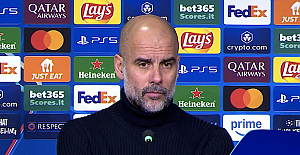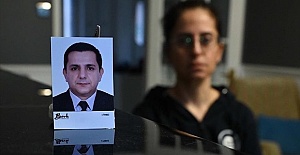The media frenzy over UKIP’s strong showing in Thursday’s county council elections has masked some important truths. Perhaps the most significant of those is that on the basis of Thursday’s votes, UKIP would not win a single seat at Westminster. Analysis by Rallings and Thresher, highlighted by Mike Smithson, concludes that the likely make-up of the House of Commons after the 2015 General Election, were those results to be repeated, would be: Labour 331, Conservative 243, Liberal Democrats 50, Others 26 — but not one single UKIP MP. I suspect the only way UKIP might get one seat — and probably just one seat — would be if Nigel Farage himself followed the Greens’ Caroline Lucas’s example and stood somewhere where UKIP polled well this week (maybe in Lincolnshire?) , though that would of course mean he would have to give up his seat in the European Parliament. Moreover, as just one MP in the House of Commons he would be unlikely to have much impact, once the novelty value wore off, as Caroline Lucas and Respect’s George Galloway have found. Britain’s first-past-the-post electoral system is harsh to smaller parties that are not regionally based (unlike Plaid Cymru and the Scottish Nationalists). So even if UKIP does very well in the (proportionally-based) European elections next year — as it probably will — that does not mean it can make a Westminster breakthrough. Meanwhile, the Liberal Democrats can be pleased that according to the Rallings and Thresher analysis of Thursday’s results they would retain 50 of their 57 current Westminster seats in 2015 despite a serious slump in their national opinion poll ratings. Thursday’s results showed that in most areas with LibDem MPs the electorate remain supportive of the party. Or as the LibDem mantra goes, “where we work, we win”.
The UK Independence Party's Nuls Points in 2015
05 Mayıs 2013 Pazar 03:47
reads.



 After Nesil Caliskan a by-election will be held in Jubilee ward in Enfield
After Nesil Caliskan a by-election will be held in Jubilee ward in Enfield Publishing the analysis, Labour’s Cllr Ergin Erbil said Everybody in Enfield deserves basic rights
Publishing the analysis, Labour’s Cllr Ergin Erbil said Everybody in Enfield deserves basic rights Gaza-Israel conflict Statement from Cllr Ergin Erbil, Leader of Enfield Council
Gaza-Israel conflict Statement from Cllr Ergin Erbil, Leader of Enfield Council Cllr Ergin Erbil was elected as the new Leader of Enfield Council
Cllr Ergin Erbil was elected as the new Leader of Enfield Council London aging faster than any other UK city, study reveals
London aging faster than any other UK city, study reveals Cold weather health alerts issued ahead of snow
Cold weather health alerts issued ahead of snow London defies weather with spectacular fireworks display to ring in 2025
London defies weather with spectacular fireworks display to ring in 2025 Alim Karaca, who hosted Bill Gates, Jeff Bezos, Trump, talked about Fethiye
Alim Karaca, who hosted Bill Gates, Jeff Bezos, Trump, talked about Fethiye Footballers are celebrating after Enfield Council officially opened a pitch
Footballers are celebrating after Enfield Council officially opened a pitch  Pep Guardiola's Manchester City beaten by Juventus
Pep Guardiola's Manchester City beaten by Juventus Chelsea to meet Arsenal in Sunday's London derby
Chelsea to meet Arsenal in Sunday's London derby Fenerbahce vs Manchester United Predicted line-ups! Jose Mourinho faces former side
Fenerbahce vs Manchester United Predicted line-ups! Jose Mourinho faces former side The transformational Elizabeth line reaches 500 million passenger journeys
The transformational Elizabeth line reaches 500 million passenger journeys HMRC DELAYS AGENT SERVICES ACCOUNT APPROVALS
HMRC DELAYS AGENT SERVICES ACCOUNT APPROVALS UK economy had zero growth between July and September
UK economy had zero growth between July and September Shape the future of housing services with The Enfield 500
Shape the future of housing services with The Enfield 500













